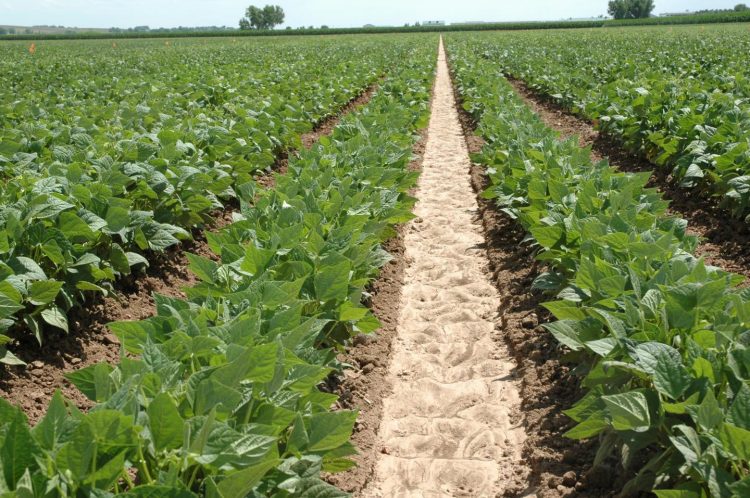Crop advances grow with protection

Crop scientists breed different varieties to enhance crop diversity and qualities. Photo credit 2015 CSSA photo contest submission
Most people are aware of open-source computer programs. These free programs, accessible by anyone, spread technology to distant corners of the world. Cutting-edge innovations, however, come at a price. As a result, many software companies license their work.
These same concerns exist within the seed-development arena. Some plant researchers support the free exchange of new varieties of seeds and plants. Doing so, they argue, benefits both plant breeders and farmers. Considering seeds “intellectual property” may seem harmful to this free exchange of information.
But all coins have two sides. Stephen Smith and a team at Iowa State University examined the impact of intellectual property protection in a new study. Smith is a professor of agronomy and visiting scientist in seed science. The researchers found intellectual property protection benefits both plant breeders and society.
Smith's study linked crop improvements to the improved economic welfare, health, and nutrition of consumers. The study showed that, in general, intellectual property protection benefits both plant breeders and society. “The metric used for measuring success as a result of plant breeding was optimal genetic innovation,” Smith says, “which we equated with optimal social welfare.”
“Future generations will rely upon an adaptive, productive, and sustainable agriculture,” he says, “conducted in a healthy and diverse biological environment.” That diversity demands the development of more crops with improved qualities.
According to Smith, intellectual property protection is necessary for several reasons. First, it helps researchers attract funding. This funding supports risky research that would not be possible otherwise. This research can lead to better products for farmers.
Second, intellectual property protection pushes crop research and development. This innovation is vital to meet increasing global challenges. Increased demand for crops, climate change, and attacks from diseases and pests are stark realities.
Finally, Smith says, “Protection is essential to help prevent misappropriation of varieties and counterfeiting of products.” Such practices hurt the abilities of farmers to run their business. They can also lead to crop failure if seeds or crop varieties are mislabeled.
The study considered several factors. It found the “strength and length” of protection is key for agricultural companies when fine-tuning their research program. The costs of purchasing or developing genetic stocks and new technologies were also considered.
Without protection, Smith says, companies would have no incentive to produce new and innovative plant varieties. “Private sector funding would not occur sustainably without the opportunity to obtain some degree of exclusivity on sale and commercial returns,” Smith explains.
Read more about Smith's work in Crop Science.
Media Contact
All latest news from the category: Agricultural and Forestry Science
Newest articles

A universal framework for spatial biology
SpatialData is a freely accessible tool to unify and integrate data from different omics technologies accounting for spatial information, which can provide holistic insights into health and disease. Biological processes…

How complex biological processes arise
A $20 million grant from the U.S. National Science Foundation (NSF) will support the establishment and operation of the National Synthesis Center for Emergence in the Molecular and Cellular Sciences (NCEMS) at…

Airborne single-photon lidar system achieves high-resolution 3D imaging
Compact, low-power system opens doors for photon-efficient drone and satellite-based environmental monitoring and mapping. Researchers have developed a compact and lightweight single-photon airborne lidar system that can acquire high-resolution 3D…





















